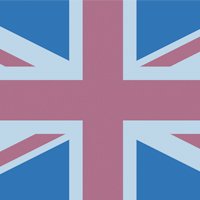It is not often the UK government spends more than £300 million on a research project largely about religion. However, it did so quietly in 2009 when the Research Council UK Global Uncertainties Programme was launched, four years after four middle-class professionals who were also Muslim bombed the London Underground for religious reasons, shifting the social and political paradigm for good.
There was no publicity about this programme’s launch—just an unremarkable and low-profile website, although it has changed its name and its look and feel since then.[1]
Religion and violence research
It was noteworthy that the academic put in charge of the Religion and Violence strand of the research—or Fellowship as it was called—was not just a Christian believer, but the country’s leading expert on evangelicalism, martyrdom, and William Wilberforce.
Under Professor John Wolffe’s capable, gentle mediation, a host of mostly left-wing academics from the world of religious studies—a profession noted mostly for its resolute determination never to define religion in a way that resonates with anyone who believes in Jesus Christ—have conducted a piece of research, the Religion, Security and Global Uncertainties Report,[2] that was launched in Westminster on 6 January 2015.
It sends a powerful signal to our rulers that things have changed—or as Tony Blair famously said after the 7/7 London bombings: ‘It is not business as usual.’
What did he—and what do we—mean by that?
Secular public domain
Britain had been run as a ‘secular’ state for more than half a century. That ended on 7/7. For Christian philosopher Alasdair MacIntyre, then a Marxist, it was more than secular: it was self-consciously atheist, he wrote in Secularization and Moral Change in the 1960s, the wish being father to the fact.
Furthermore, as regards religion, the state stands neutral was the famous legal doctrine that governed disputes concerning ethnic religious requirements. Secularization was viewed by all as a process of inevitable religious decline. To be secular was to be progressive; to have no faith. You could do what you wanted in the privacy of your own home, but religion in the public domain was simply considered anachronistic. Before 9/11 and 7/7 changed all that, judges under European directives were set on marginalising religion.
The Vienna-based Observatory on Intolerance and Discrimination against Christians in Europe (OIDACE) documented in its 2012 Report 41 examples of national laws with adverse effects on Christians in 15 European countries, plus 169 of what is described as ‘the most striking cases’ in the EU area.[3] Lord Woolf, retiring as England’s Lord Chief Justice, said without irony in January 2011 on the BBC’s World This Weekend show, that the country’s judiciary had gone too far in curbing the rights of Christians to demonstrate their faith at work.
Failed multiculturalism
Lord Woolf demonstrated little awareness during his decade as a senior judge that the secular space minorities inhabited and in which they were making great demands for extra—not just equal—rights, was won at great cost by Christians. Multiculturalism is the disastrous policy of state-funded group identity politics that undergirded UK social policy since the 1960s. It was based on a hard-edged, legally embedded view of a religion-defined ethnicity that is, as commentators like Werner Menski of the School of Oriental and African Studies have noted, another word for informal apartheid.
However, it was a law of diminishing returns. The hospitality and tolerance that group politics exploits is Christian. Protestant tract-writers like John Milton regarded as the ultimate value the freedom of all to exercise their conscience against state coercion, and were prepared to die for it. However, when such conviction is itself excluded or regarded as merely one among many equal and equally irrelevant religious opinions, the survival of the modern state itself is in jeopardy. Yet there has been little acknowledgement among politicians of the theology behind this. If we lose that knowledge, we lose the whole edifice of freedoms that so many millions have flocked to the West to enjoy.
A combination of atheism and middle-European, Marxist-tinged ideology peddled by groups like the Socialist Workers Party produced activists who colluded with Islamists to subvert the hitherto dominant Christian-ish discourse. They rendered it first laughable, then terrifying to admit to a Christian faith in public, or even to act with even-handedness that might be construed as Christian.
The fight-back against secularism
However, now, at last, popular commentators are fighting back: Classicist Tom Holland came out this year as a Christian in the New Humanist magazine with the headline: ‘Secularism is Christianity’s greatest gift to the world’.[4]
Professor John Milbank writing on the Public Spirit website said: ‘Christianity has always been different because, from the outset, it started to differentiate in a newly drastic way between the sacred and the secular by removing a religious aura from political formations through the invention of a new, post-legal polity, the ecclesia, whose aims of peace and reconciliation were in excess of those of legal and justice-seeking processes.’[5]
He cites the popular writer on religion Karen Armstrong who says in The Myth of Religious Violence: ‘Secularization . . . was not simply to do with a turning away in horror from religious violence to an already available secular option. Instead, that option had to be invented, and the exigencies behind its invention were in part the seizing of power by nation states against the authority of the sacral emperor as well as sacral Pope.’ She might have added: ‘seizing of power by Christian nation states’.
Kate Cooper, Professor of Ancient History at Manchester University contributes a startling piece to the Religion, Security and Global Uncertainties Report in which she locates the ideological underpinning for hospitable secularism in the writing of St Augustine. She writes: ‘In this age (saeculum) no human being can fully know God’s will—perfect knowledge of God is unattainable in the saeculum and will be revealed at the end of time . . . In light of this, it is fitting for human institutions to avoid unnecessary acts of aggression against the patrimony of minority faith traditions . . . where possible.’
Religious illiteracy
However, when secularism begins to act like a religion itself, seeking to privilege itself at the expense of all others, including its parent religion, Christianity, the state begins to cannibalise society. Business as usual meant ignoring the facts of Europe’s own history and theology. It meant ignoring or being blind to the potency of theologies that could result in outrages on civilians, and as we are now seeing in Europe, the recruitment of suburban youth for holy war.
When religion was just an opinion, the intelligence services simply watched, without taking action, the development of a grievance theology among jihadis in Britain. Jihadism seeks justification for its adherents’ anarchic anomie and self-hatred in spurious global causes of no possible relation to themselves, as is documented in detail by Jonathan Birt in his chapter in the book Dying for Faith.[6] State agencies recklessly arrogated to themselves permission to ignore what was happening—and people died.
This was religious illiteracy, and Lapido Media Centre for Religious Literacy in World Affairs has been mostly a lone voice—until now—campaigning to end it.
Endnotes
- http://www.globaluncertainties.org.uk/
- http://www.open.ac.uk/arts/research/religion-martyrdom-global-uncertainties/sites/www.open.ac.uk.arts.research.religion-martyrdom-global-uncertainties/files/files/ecms/arts-rmgu-pr/web-content/Religion-Security-Global-Uncertainties.pdf
- Roger Trigg, ‘Canary in the Coal Mine: Mounting Religious Restrictions in Europe’, Berkley Center for Religion, Peace & World Affairs, 23 January 2013, accessed 1 December 2014, http://berkleycenter.georgetown.edu/essays/canary-in-the-coal-mine-mounting-religious-restrictions-in-europe. These fall into five categories of what it describes as particular concern: (1) Limiting Conscientious Objection (especially in: Belgium, France, the Czech Republic, Austria, and Ireland); (2) Curbing Free Speech by Hate Speech Legislation (France, Sweden, and the United Kingdom); (3) Violations of Freedom of Assembly and Association (Germany, France, Netherlands, Austria, and Spain); (4) Discriminatory Equality Policies (EU, United Kingdom, Denmark, Ireland, Netherlands, and Spain); (5) Limiting Parental Rights (Belgium, France, Germany, Slovakia, Spain, and Sweden). It claims that cases of violence and intimidation against Christians across Europe are being reinforced by the negativity of courts towards Christians. It believes something fundamental has changed since Europe embarked on its project of economic merger, and that startling incidences of violence and hatred are what is being called elsewhere the canary in the mineshaft: new signs of trouble ahead.
- https://newhumanist.org.uk/articles/4487/secularism-is-christianitys-greatest-gift-to-the-world
- http://www.publicspirit.org.uk/religion-and-secularity-in-britain-today/
- Jonathan Birt, ‘The Radical Nineties Revisited: Jihadi Discourses in Britain’, in Dying for Faith, ed Madawi Al-Rasheed and Marat Shterin (New York: I B Tauris & Co Ltd, 2009), 105-110.

